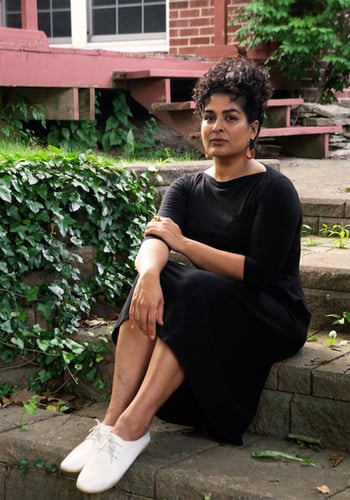Through the use of poetry, I emphasize the risk to nonwhite individuals presumed to be trespassing in white spaces and challenge readers to reconsider the fragile boundaries they share with one another.
I began working on “Curb” in 2017 shortly after I returned from Singapore to the United States, when Donald Trump was just beginning his presidency.
I was taking a walk with my mother when she said to me, “Now that Trump is in office, I’m afraid to even take walks.” I thought about that fear expressed by my very confident, very brave, very bold, immigrant mother. I had to take that fear seriously, and I needed to understand it and imagine where it comes from. I needed to understand and explain to others how that fear had a history, a history that began in the 1800s and has become more refined and more weaponized over time.
In some ways, this is a book about the fear that immigrants live with deep in their hearts, and the ways in which they confront that fear and keep themselves together as they navigate these public spaces.
I chose the title, "Curb," because it’s the dividing element that forms an edge between the road and the sidewalk, which is also used to restrain, to check, to stop, or to arrest.
A curb is a tool that we use to restrain horses to change their direction to rein them in to control them. So, I’m very interested in the ways the nation, state and, now increasingly the militarized police state, curbs the immigrant — how it restrains us, how it prevents certain freedoms, of feeling freedoms, of living freedoms, of being ourselves in this country.
I dedicated this book to the men whose lives were taken from them because of xenophobia, racism and anti-immigrant sentiment, while acknowledging how they were seen as a stranger and as a threat, so monstrous and terrifying, that they were taken out of this world somehow.
The power of white supremacy is that it steals from you people you never knew. People who could have been your family. People who could have been your friends. People who could have come over for dinner.

